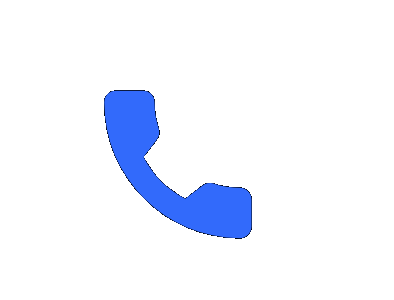In recent years, blockchain has become the latest buzzword in the industry IT. The meteoric rise of Bitcoin may have piqued your interest in blockchain technology. It is undoubtedly a radically modern, exclusive and realistic use of cryptography and mathematical techniques. In more formal terms, the blockchain is a public archive or open server that can be used by anyone who has access to the Internet. This unified, public database can be used for any transaction involving value, assets, products, land, or even votes.
The innovative blockchain technology:
You may have heard of bitcoins, but this online ledger, also called blockchain, is also included in a number of other applications, including loans, certificates, and attestations. This technology has a variety of applications. Many analysts believe that blockchain will be used to collect taxes in the near future. Blockchain technology would make it a breeze to send and exchange money across borders.
Since every transaction is recorded in a shared distributed ledger or decentralized archive, the likelihood of transaction fraud is greatly reduced. Because blockchain technology offers more secure, effective and open ways to manage transactions, it has the potential to become a global, decentralized source of trust.
Real estate, stock exchanges, online computing, email technology, and authenticated voting are just a few of the promising applications of blockchain technology. Education is another major area where blockchain technology has great potential. Below, we discuss how the use of blockchain technologies in the education sector will benefit both students and educational institutions.
The multiple possibilities of blockchain technology in education:
1.Creating a strong and better peer network
Regardless of how many educational forums or networking networks are created, the education sector lacks a well-organised structure that allows teachers and students to communicate with each other. Blockchain technology has the potential to fill this gap and create a more reliable and open peer-to-peer network. The network would be much more reliable and authentic.
Technology specialists can build a network that allows students to communicate directly with tutors from around the world. The blockchain platform will underpin the transmissions and interactions. As a result, it is expected to be a much more stable and efficient network.
This could open up new horizons and opportunities for e-learning. In such a forum, students could freely communicate with tutors and request online help with dissertations. In the same forum, they will study new disciplines, advanced topics and fundamental concepts.
Students and teachers connect for tutoring sessions and set their own time, cost, assignments, and other terms. The intelligent records of such arrangements can be kept secure through block chaining. This eliminates the need for a third party in the middle, saving resources and time for all involved.
2. A solution for more credibility in testimonies.
Online education has become a feature of much of higher education. Educators are developing more and more online courses on a variety of topics and disciplines. Fake credentials and degrees have become more common with the rise of online education. Regardless of how diligent educational institutions are, fake credentials can happen.
Blockchain could be a viable solution to this problem. Blockchain technology is also used to store the degrees that students receive. This reduces the risk of falsification of the original degree or certificates issued by different educational institutions.
3. A global rating system
You can think of this as an extension of the earlier use of block chaining technology. Learners may find it helpful to create a virtual copy of their degrees and certifications when applying for admission to a university, changing careers, or moving to a new country. Blockchain technology would allow for secure online storage of records. Because the records are accessible online, employers, immigration authorities, and educational institutions can more easily evaluate them to improve the assessment process.
Brugu has taken the first step in this direction. They’ve developed a blockchain-based technology for the open exchange of academic documents and other qualifications. Chainscript is a technology developed by the University of Texas. Its main goal is to create an unchallengeable portfolio for students using blockchain technologies. The e-portfolio would track all students’ academic milestones, including e-credentials, micro-credentials, degrees, and other skills. This would save colleges a lot of money and time when it comes to awarding and verifying licences and degrees.
4. The introduction of cryptocurrencies
Universities and faculty are getting serious about accepting Bitcoins as a means of paying for tuition. In fact, the College of Nicosia and King’s College in New York have already begun recognizing cryptocurrencies as a means of payment for tuition. While there are few students in this group who have paid their fees in Bitcoins, we should expect this to be the way remittances are made in the education sector in the future.
From the above application of blockchain technology in the education sector, it should be apparent how immense the possibilities of this technology are. This breakthrough would be applicable to teachers, colleges, schools, universities, online learning, businesses, apprenticeships, and information databases in all areas of the education sector. The adoption of blockchain technologies does not mean that institutions cannot play a role in the relationship between teachers and students. It can improve the learning and teaching process in any case, but education will always be a matter of trust in the end.
In other words, the prestige of a school or college would matter. Regardless of how accessible learning channels become, teaching style and teacher experience remain critical. In addition, educational values and cultural norms may continue to be a barrier to innovation. Implementing blockchain technologies requires money, and whether an individual organization is able to spend that money appropriately depends entirely on it. Therefore, we can conclude that there is educational growth, but not at a rapid pace. What do you think? Is it possible that blockchain will change the education industry?

 Speak to expert
Speak to expert
Be First to Comment